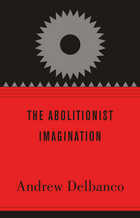
The abolitionists of the mid-nineteenth century have long been painted in extremes--vilified as reckless zealots who provoked the catastrophic bloodletting of the Civil War, or praised as daring and courageous reformers who hastened the end of slavery. But Andrew Delbanco sees abolitionists in a different light, as the embodiment of a driving force in American history: the recurrent impulse of an adamant minority to rid the world of outrageous evil.
Delbanco imparts to the reader a sense of what it meant to be a thoughtful citizen in nineteenth-century America, appalled by slavery yet aware of the fragility of the republic and the high cost of radical action. In this light, we can better understand why the fiery vision of the "abolitionist imagination" alarmed such contemporary witnesses as Herman Melville and Nathaniel Hawthorne even as they sympathized with the cause. The story of the abolitionists thus becomes both a stirring tale of moral fervor and a cautionary tale of ideological certitude. And it raises the question of when the demand for purifying action is cogent and honorable, and when it is fanatic and irresponsible.
Delbanco's work is placed in conversation with responses from literary scholars and historians. These provocative essays bring the past into urgent dialogue with the present, dissecting the power and legacies of a determined movement to bring America's reality into conformity with American ideals.
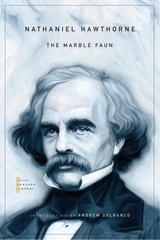
Nathaniel Hawthorne’s The Marble Faun mingles fable with fact in a mysterious tale of American artists liberated from New England mores in Rome. In his introduction, Andrew Delbanco remarks that Hawthorne’s novel is ultimately less about freedom than its costs. It is a book “that invites us to observe people in the grip of guilt, passion, or a naïve faith in God or art, and to watch them seek escape from their fears and doubts as their creed—whatever it is—fails them.” The John Harvard Library edition reproduces the authoritative text of The Marble Faun in The Centenary Edition of the Works of Nathaniel Hawthorne.
Since 1959 The John Harvard Library has been instrumental in publishing essential American writings in authoritative editions.
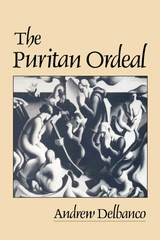
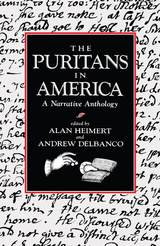
The whole destiny of America is contained in the first Puritans who landed on these shores, wrote de Tocqueville. These newcomers, and the range of their intellectual achievements and failures, are vividly depicted in The Puritans in America. Exiled from England, the Puritans settled in what Cromwell called “a poor, cold, and useless” place—where they created a body of ideas and aspirations that were essential in the shaping of American religion, politics, and culture.
In a felicitous blend of documents and narrative Alan Heimert and Andrew Delbanco recapture the sweep and restless change of Puritan thought from its incipient Americanism through its dominance in New England society to its fragmentation in the face of dissent from within and without. A general introduction sketches the Puritan environment, and shorter introductions open each of the six sections of the collection. Thirty-eight writers are included—among these Cotton, Bradford, Bradstreet, Winthrop, Rowlandson, Taylor, and the Mathers—as well as the testimony of Anne Hutchinson and documents illustrating the witchcraft crisis. The works, several of which are published here for the first time since the seventeenth century, are presented in modern spelling and punctuation.
Despite numerous scholarly probings, Puritanism remains resistant to categories, whether those of Perry Miller, Max Weber, or Christopher Hill. This new anthology—the first major interpretive collection in nearly fifty years—reveals the beauty and power of Puritan literature as it emerged from the pursuit of self-knowledge in the New World.
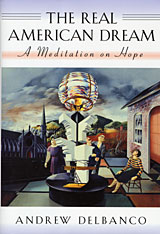
Since we discovered that, in Tocqueville’s words, “the incomplete joys of this world will never satisfy the heart,” how have we Americans made do? In The Real American Dream one of the nation’s premier literary scholars searches out the symbols and stories by which Americans have reached for something beyond worldly desire. A spiritual history ranging from the first English settlements to the present day, the book is also a lively, deeply learned meditation on hope.
Andrew Delbanco tells of the stringent God of Protestant Christianity, who exerted immense force over the language, institutions, and customs of the culture for nearly 200 years. He describes the falling away of this God and the rise of the idea of a sacred nation-state. And, finally, he speaks of our own moment, when symbols of nationalism are in decline, leaving us with nothing to satisfy the longing for transcendence once sustained by God and nation.
From the Christian story that expressed the earliest Puritan yearnings to New Age spirituality, apocalyptic environmentalism, and the multicultural search for ancestral roots that divert our own, The Real American Dream evokes the tidal rhythm of American history. It shows how Americans have organized their days and ordered their lives—and ultimately created a culture—to make sense of the pain, desire, pleasure, and fear that are the stuff of human experience. In a time of cultural crisis, when the old stories seem to be faltering, this book offers a lesson in the painstaking remaking of the American dream.

"At first reading, Representative Men seems the most alien of Emerson's books. First published in 1850 (having taken form over the five preceding years as a series of lectures intended as 'winter evening entertainments'), it was inspired by the romantic belief that there exists a 'general mind' that expresses itself with special intensity through certain individual lives. It was an appreciation of genius as a quality distributed to the few for the benefit of the many. When, according to Longfellow, Emerson began to speak on these themes in Boston in 1845, the Odeon theater was jammed with 'old men and young, bald heads and flowing transcendental locks, matrons and maidens, misanthropists and lovers.' The crowds were rapt and grateful, as were their counterparts two years later in England where the lecture series continued...
This edition of Representative Men is reproduced from the fourth volume of The Collected Works of Ralph Waldo Emerson, text established by Douglas Emory Wilson.

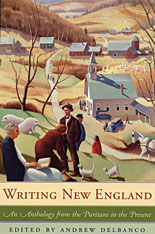
The story of New England writing begins some 400 years ago, when a group of English Puritans crossed the Atlantic believing that God had appointed them to bring light and truth to the New World. Over the centuries since, the people of New England have produced one of the great literary traditions of the world--an outpouring of poetry, fiction, history, memoirs, letters, and essays that records how the original dream of a godly commonwealth has been both sustained and transformed into a modern secular culture enriched by people of many backgrounds and convictions.
Writing New England, edited by the literary scholar and critic Andrew Delbanco, is the most comprehensive anthology of this tradition, offering a full range of thought and style. The major figures of New England literature--from John Winthrop and Anne Bradstreet to Emerson, Hawthorne, Dickinson, and Thoreau, to Robert Frost, Wallace Stevens, Robert Lowell, Anne Sexton, and John Updike--are of course represented, often with fresh and less familiar selections from their works. But Writing New England also samples a wide range of writings including Puritan sermons, court records from the Salem witch trials, Felix Frankfurter's account of the case of Sacco and Vanzetti, William Apess's eulogy for the Native American King Philip, pamphlets and poems of the Revolution and the Civil War, natural history, autobiographical writings of W. E. B. Du Bois and Malcolm X, Mary Antin's account of the immigrant experience, John F. Kennedy's broadcast address on civil rights, and A. Bartlett Giamatti's memoir of a Red Sox fan.
Organized thematically, this anthology provides a collective self-portrait of the New England mind. With an introductory essay on the origins of New England, a detailed chronology, and explanatory headnotes for each selection, the book is a welcoming introduction to a great American literary tradition and a treasury of vivid writing that defines what it has meant, over nearly four centuries, to be a New Englander.
From the Preface:
"Imposing one unitary meaning on New England would be as foolish as it would be unconvincing. Yet one purpose of this book is to convey some sense of New England's continuities and coherence...Not all the writers in this book are major figures (a few are barely known), but all are here because of the bracing freshness with which they describe places, people, ideas, and events to which, even if the subject is familiar, we are re-awakened."
READERS
Browse our collection.
PUBLISHERS
See BiblioVault's publisher services.
STUDENT SERVICES
Files for college accessibility offices.
UChicago Accessibility Resources
home | accessibility | search | about | contact us
BiblioVault ® 2001 - 2024
The University of Chicago Press









